Warning: bangers incoming.
In my humble (and usually wrong) opinion, we don’t praise anime soundtracks enough. We praise soundtracks for live-action series like Stranger Things, or for Western animated movies like The Lion King. But when it comes to anime, we usually only talk about things that don’t make bangers, like story and action and voice acting. But when I’m in the car on the way to the club, I don’t want to put on a recording of the cast of Kill La Kill screaming at each other (though that would get me pretty hype), I want to listen to music that gets me ready to throw ass.
So this is it, gang. According to my humble (and usually wrong) opinion, these soundtracks are some of the best that anime has to offer.
Cowboy Bebop
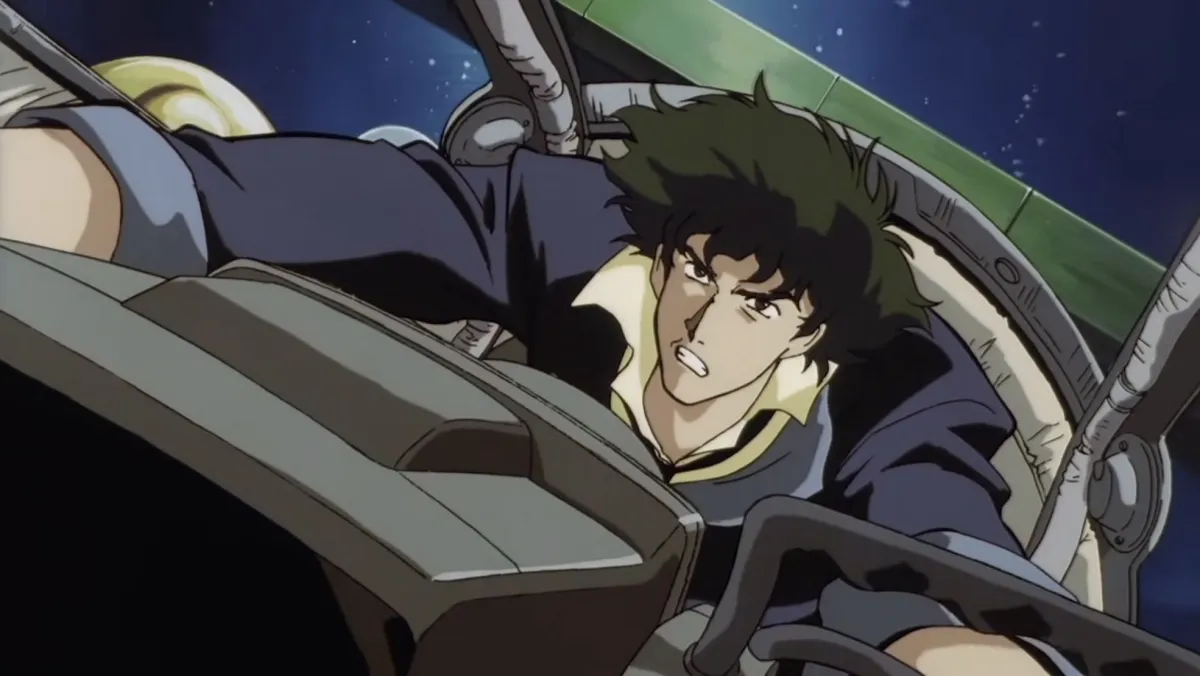
Well, this is just a fucking no-brainer. It’s Cowboy Bebop. Music is a character in this series. Without the music, this series wouldn’t have achieved the levels of critical acclaim that it enjoys. It’s an essential component of what Cowboy Bebop does better than every other anime: style. The series is cool, contemplative, and fun, and the music is the number one reason why.
First off, the main theme, “Tank!” makes me want to throw ass in a jazzy way. It’s a triumph of modern jazz composition. After the greats had their days in the sun, jazz took something of a downturn and became a style of music that was often meandering, esoteric, and downright pretentious. Seatbelts, the composers of “Tank!” said, “fuck that,” and instead made a fun, frenetic, and infectiously catchy jazz tune that Bebop viewers will be humming for decades.
The series also has beautiful, sweeping, and tear-jerking works like “Space Lion,” a drum and vocal piece that closes out the ending of season 1. Cowboy Bebop‘s soundtrack is a triumph of composition and is (arguably) the finest anime soundtrack of all time.
Samurai Champloo
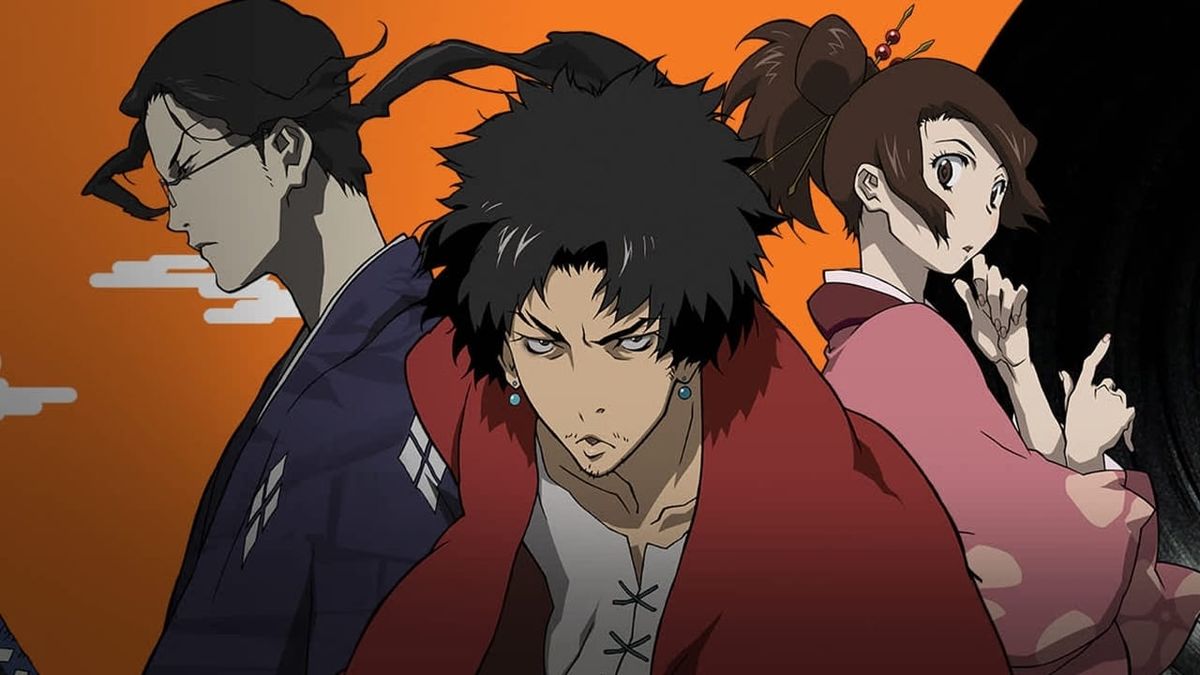
Samurai Champloo‘s soundtrack features work from one of the pioneers of the lo-fi hip hop genre, a Japanese producer known as Nujabes. Born as Jun Seba, Nujabes is known as one of the godfathers of lo-fi hip hop, alongside American producer J Dilla. Through clever uses of sampling, both of these artists helped shape a genre that flies in the face of traditional songwriting, and prioritizes mood and atmosphere over lyrics and song structure.
Much like its predecessor, Cowboy Bebop, the music of Champloo allows the series to maintain a contemplative, ephemeral atmosphere that is beautifully juxtaposed against the stark violence of many of its plotlines. The soundtrack often contrasts its easy going nature in key moments to great dramatic effect. Take “The Million Way of Drum” sequence from “Misguided Miscreants (Part 2).” Just when the antagonist of that particular episode thinks he’s in the clear after screwing over our favorite anti-hero, Mugen shows up—backed by a whirlwind of drums—to remind the guy why he shouldn’t have trifled with him. At its best, Samurai Champloo‘s soundtrack is moody, dreamy, and the highest of praise: chill af.
Neon Genesis Evangelion
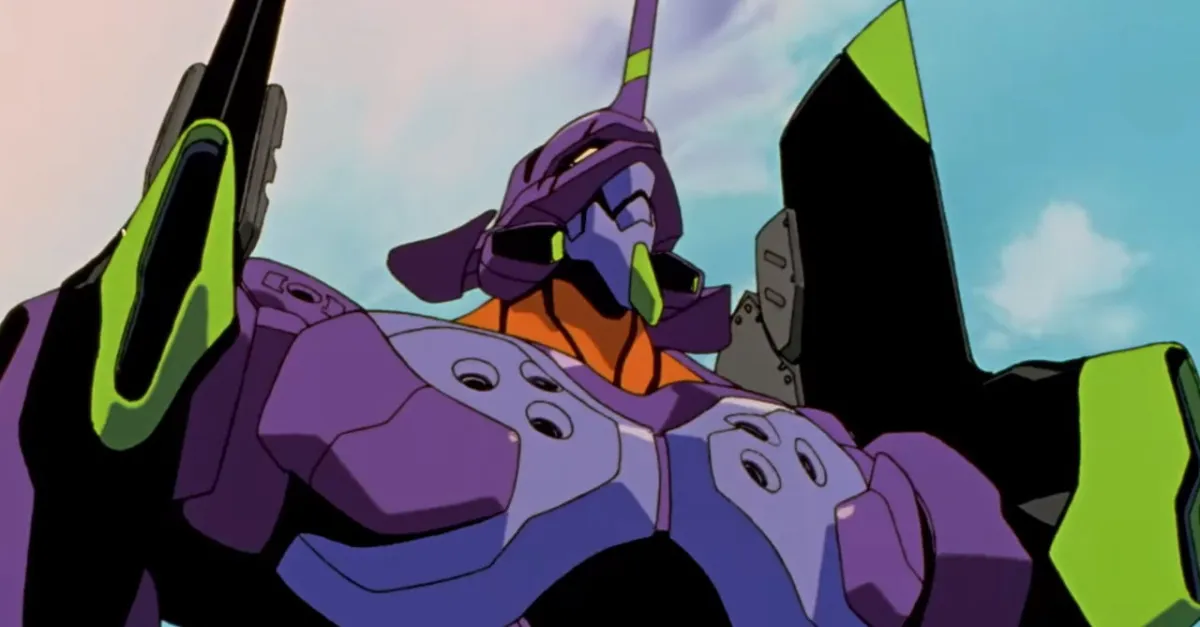
Confession: I don’t remember too much of Neon Genesis Evangelion‘s actual in-episode soundtrack, but that doesn’t matter because the intro song “A Cruel Angel’s Thesis” by Yoko Takahashi is perhaps the greatest anime intro music of all time. It is ABBA-level catchy; a baroque pop earworm complete with gorgeous vocals, stunning melodies, and perhaps the most banging horn section of any anime song, ever. It’s a triumph of songwriting, and its happy-go-lucky melody holds a sinister undercurrent.
On the surface, the song sounds joyful, but something in the composition puts me on edge every time I hear it. It is the sound of dancing wildly on the edge of an abyss. The title alone is enough to send chills down the spine. “A Cruel Angel’s Thesis” is the ultimate theory of a divine malevolent being. It is the perfect piece of music for a series that is reconciling with the meaning of being human in the face of god-like otherworldly power.
Naruto
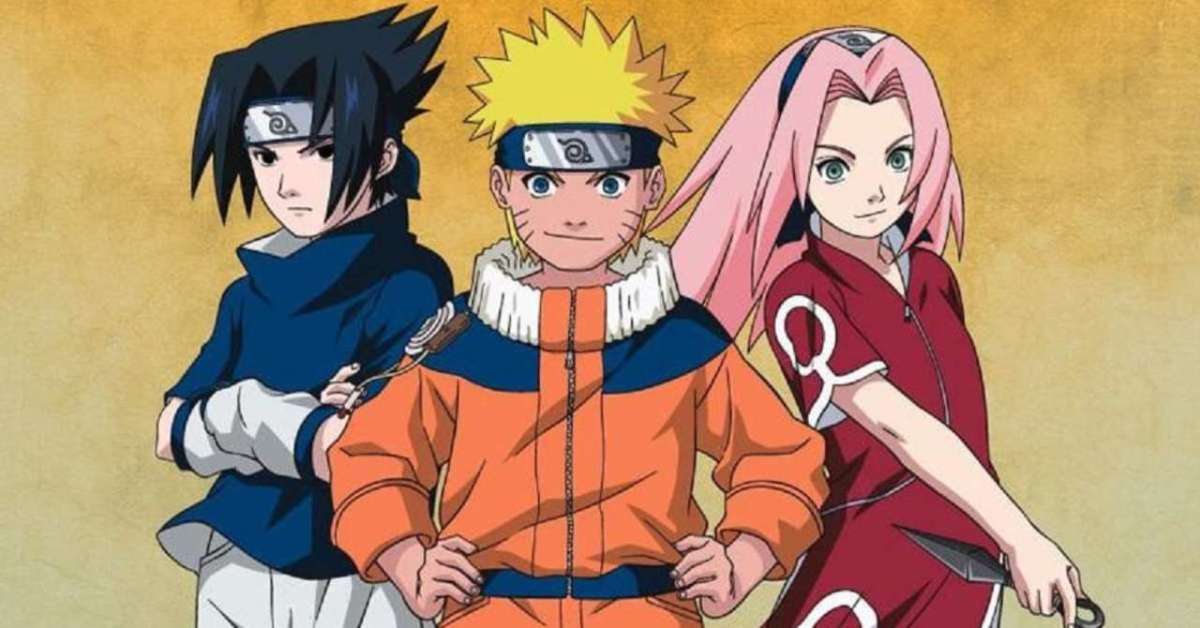
Another confession: I can’t get into Naruto. Don’t get me wrong, I think it’s awesome. The world-building is phenomenal. The characters are deep and nuanced. The million-and-one ninja techniques are all creative as hell. But there’s just too much filler. There’s too much of it. I can’t keep up. I’ve tried so many times to watch the show and I just get burned out. But one aspect of this series that never fails to disappoint me is the music. It kicks ass.
When Asian Kung-Fu Generation’s “Haruka Natada” plays over the early series opening sequence, I get chills. When Naruto is about to get the upper hand in battle and his theme music starts playing, I get chills. When Sasuke says the phrase, “Demon wind shuriken: windmill of shadows!” in his fight with Zabuza and that piano music starts playing, I get chills.
The music of Naruto is nothing short of phenomenal. It’s bold, badass, and creative as hell. Writing about it makes me want to consult a filler-episode guide and give the series another go. And I just might.
Attack on Titan
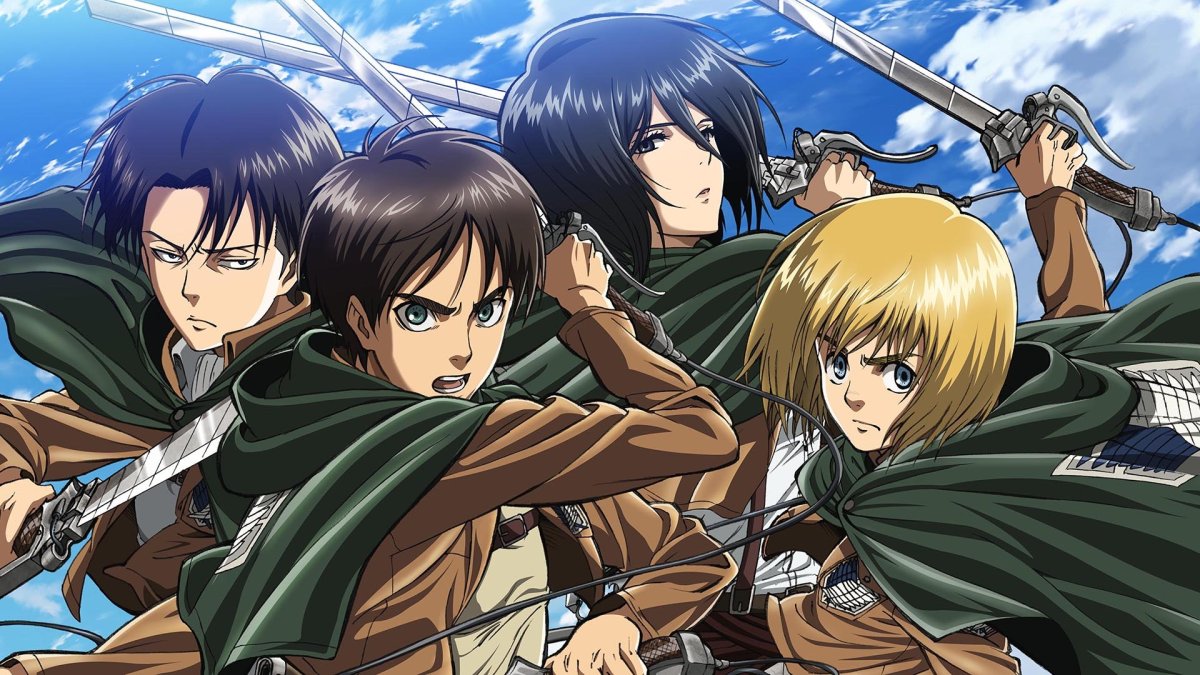
The music of Attack on Titan is often like the show itself: bombastic, terrifying, and melodramatic in the best way possible. The main theme from season 1 has all the gravitas of John Williams’ famous “Duel of the Fates” from Star Wars. Each piece of music from this show fills the listener with an enormous sense of dread. And since it’s Attack on Titan, that dread is never unfounded. Even the “peaceful” music during the end credits is often creepy as hell. Just check out the end credits from season 2 and you’ll see what I mean.
The series also experiments with genre in a variety of creative ways, sometimes within the confines of a single track. It’s not unusual for an AoT song to go from orchestral and operatic to alt-rock and heavy metal in the hair’s breadth of time between a verse and a bridge. The score is not without its beautiful moments as well, and often features sweeping string arrangements accompanied by delicate acoustic guitar.
In a show that can turn from triumphant to terrifying in the span of a second, Attack on Titan screams for a score to reflect that juxtaposition sonically. I think they succeeded. Now, excuse me while I go have nightmares.
FLCL
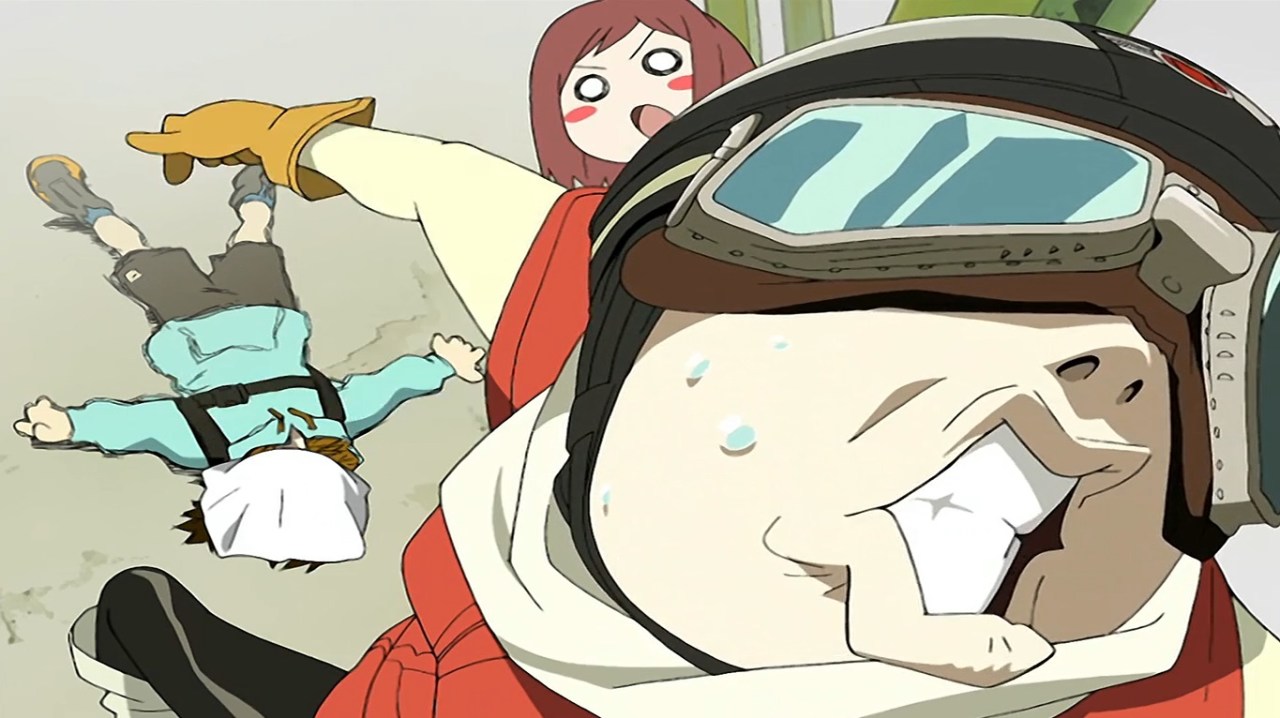
Written almost entirely by the Japanese rock band The Pillows, FLCL has a soundtrack that feels delightfully “uncomposed.” What I mean by this is that the tracks don’t reek of classical arrangements or a fancy music school education. They feel down to earth, gritty, and raw—like they were written by four kids in a garage (and perhaps they were?).
The soundtrack of FLCL captures the angst of youth in the same way that the soundtrack for garage/indie rock opus Scott Pilgrim vs. The World does. It’s a show about being young, dealing with crushes, and growing up. It also deals with a Rickenbacker bass-playing alien girl sent from an intergalactic police force to fight off an extraterrestrial robot invasion. But indie rock has been dealing with themes like that since the early ’00s! Have a listen to The Flaming Lips album Yoshimi Battles the Pink Robots and you’ll know what I mean.
Kill La Kill
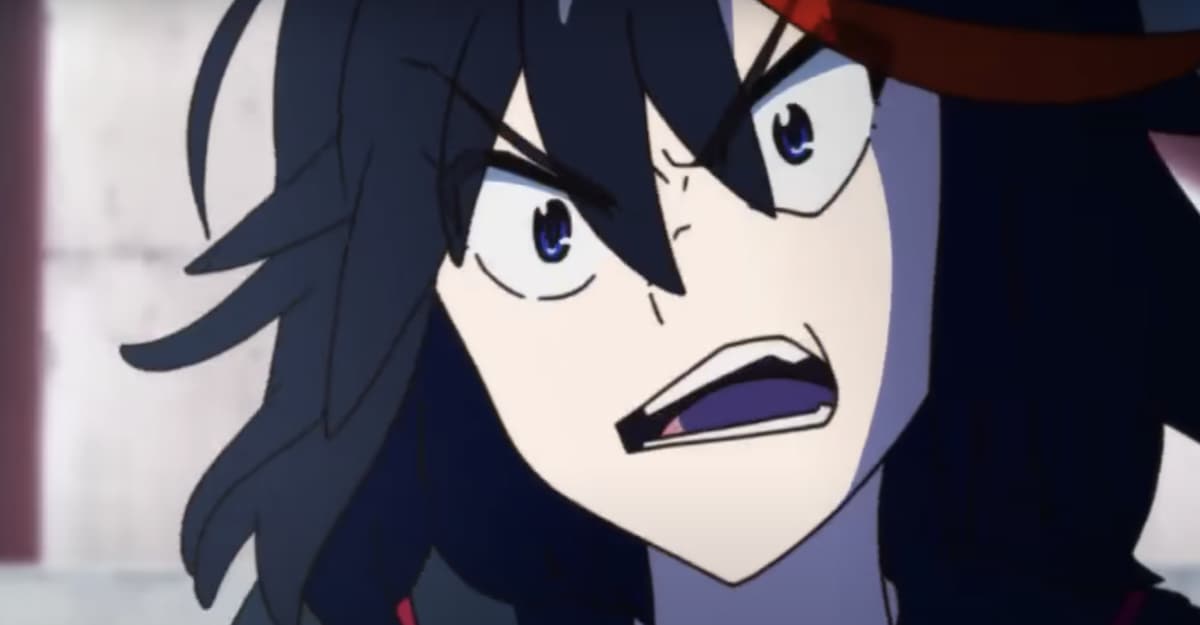
Like Neon Genesis Evangelion and “A Cruel Angel’s Thesis” before it, Kill La Kill is in possession of a gem of a banger. I’m talking, of course, about “Don’t Lose Your Way.” It’s an absolute alt-rock hit. And it only plays during the most badass moments of Kill La Kill—usually when Ryuku reclaims the upper-hand in battle with a particularly tough foe. This happens more often than you’d think, actually, and while any lesser song would certainly lose its impact—due to the law of diminishing returns (i.e., if you repeat it too much, it gets old)—”Don’t Lose Your Way” never falls victim to this. I really just don’t get sick of it. It’s so soul-stirring. Very Young Girl vs. the World. So hopeful and powerful and triumphant. It’s just a great fucking song.
And the rest of the soundtrack is no slouch, either. It was composed by Hiroyuki Sawano, who also did the music for Attack on Titan and a number of other popular anime titles. Like Attack on Titan, the soundtrack is a sonic mutt of genre, borrowing from electronica, orchestra, and rock and roll. It really just makes you want to pick up a pair of scissors and fight the person who killed your father. Just don’t run while you do it, for safety’s sake.
Mushishi
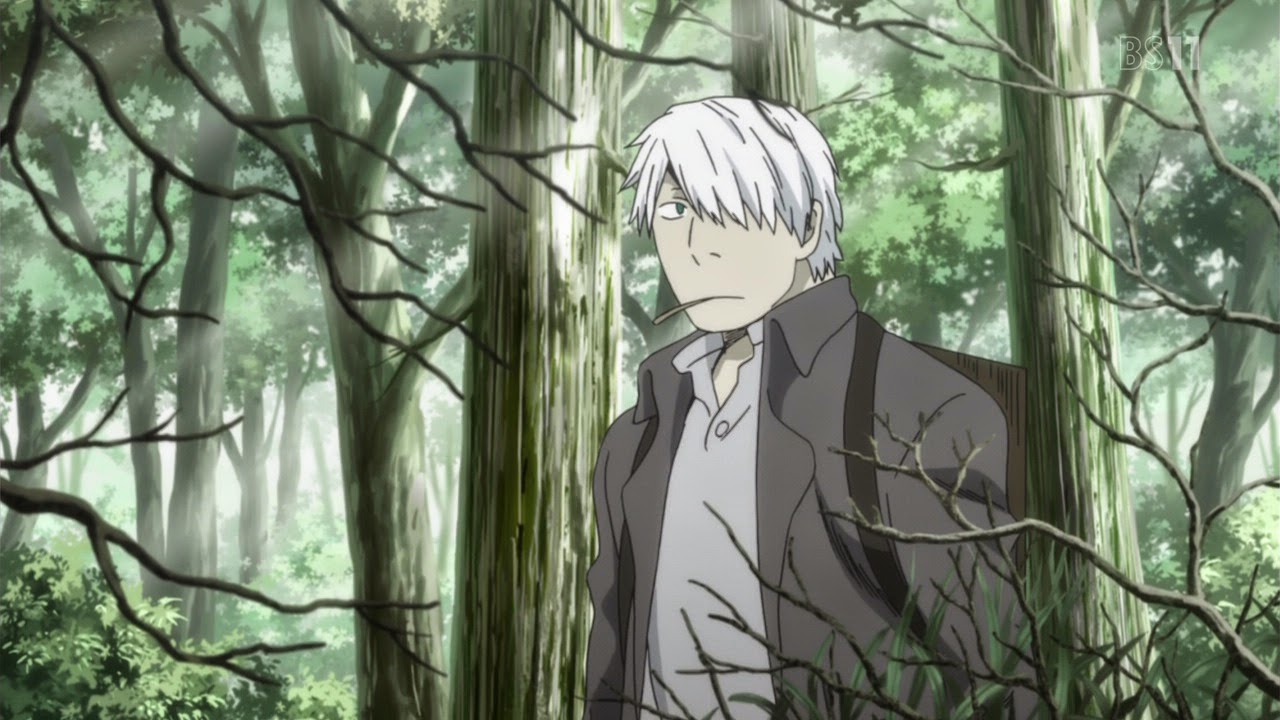
This slightly obscure anime about a traveling doctor who cures people of complications caused by spirits has an absolutely breathtaking soundtrack. The main theme is a gorgeous acoustic guitar ballad with the structure and complexity of an Elliott Smith song. While many anime soundtracks on this list are a masterclass in drama and bombast, this soundtrack is particularly ingenious for its use of subtlety.
Watching an episode of Mushishi feels in many ways like a meditation. The pace of the episodes is slow and easy, like watching a flower grow. Don’t get me wrong: There are life and death situations in nearly every episode, but one can’t help but feel a sense of quiet and contemplative calm when watching the series. The soundtrack only adds to the blood pressure-lowering effect of the episodes with soothing chimes, piping flutes, and fragile acoustic guitars. It’s a series to unwind to after a long, hard day. Maybe watch it to decompress after stabbing your father’s killer to death with scissors (that I hope you weren’t running with).
Chainsaw Man
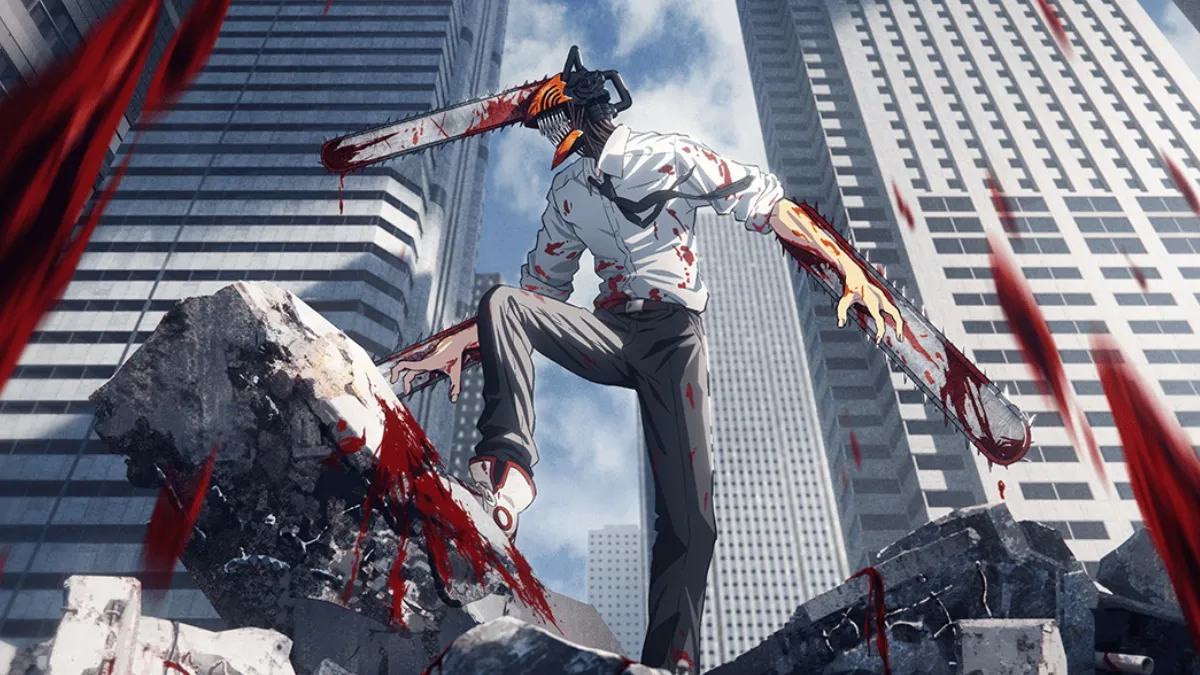
Chainsaw Man is putting in WORK to be considered a modern anime classic. It’s just breathtaking. And the soundtrack? Unreal. I mean, JUST LISTEN TO THOSE END CREDITS SEQUENCES. They have a DIFFERENT SONG AND ANIMATION FOR EVERY EPISODE. Who told them to go that hard? Now go put on “Dogland” by People 1 from the ending of episode 10 and tell me that chorus doesn’t hit. I’ll wait.
Your Lie in April
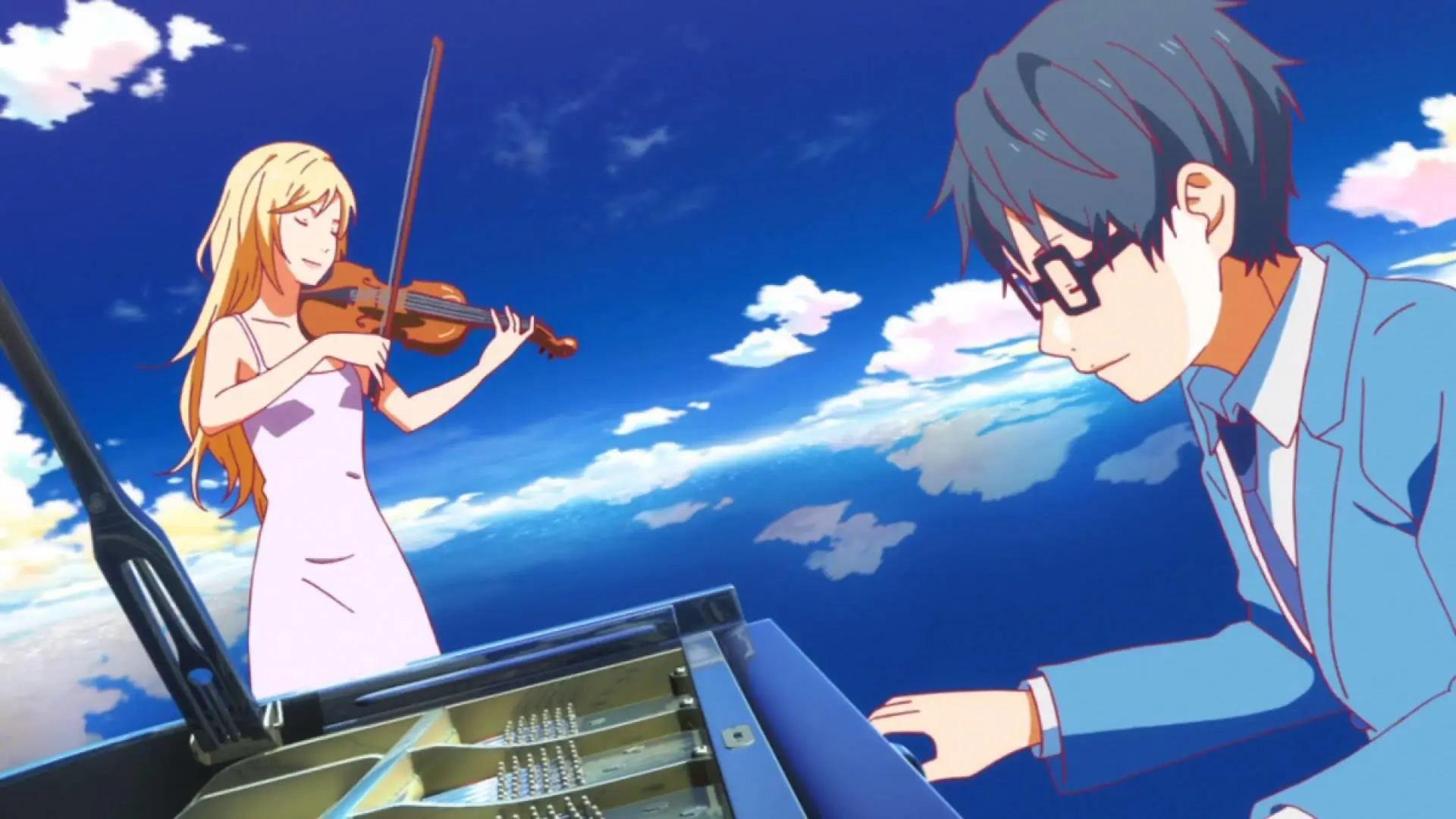
This soundtrack is for all you intellectuals out there. Your Lie in April is an anime about a young piano prodigy who lost his ability to play after suffering a deep trauma. HOWEVER, he meets a young violinist and his love for music slowly returns as his depression lifts. It’s a show about musicians, so there’s gonna be music. A lot of music. Sweeping, gorgeous, complex music. And oh, god, the beauty of the performance sequences will be enough to bring tears to your eyes .
(featured image: Crunchyroll)



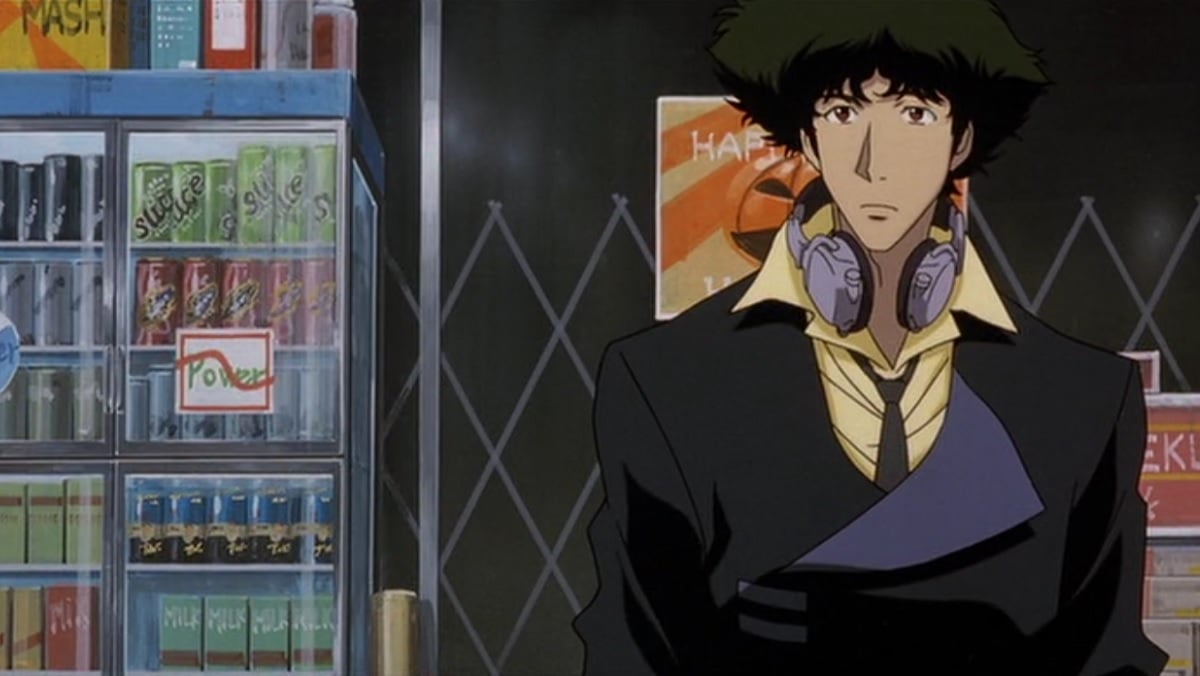






Published: Feb 10, 2023 12:39 pm